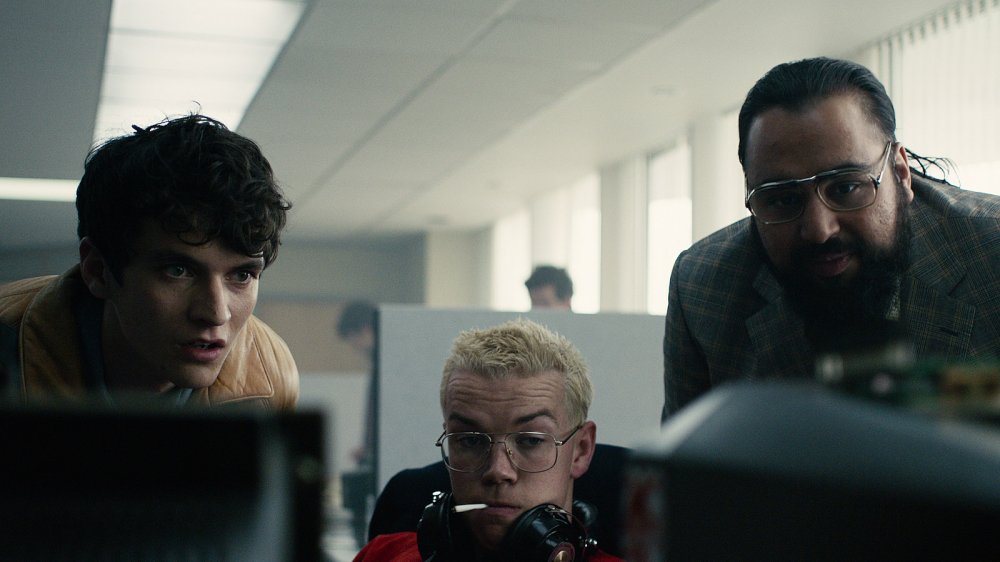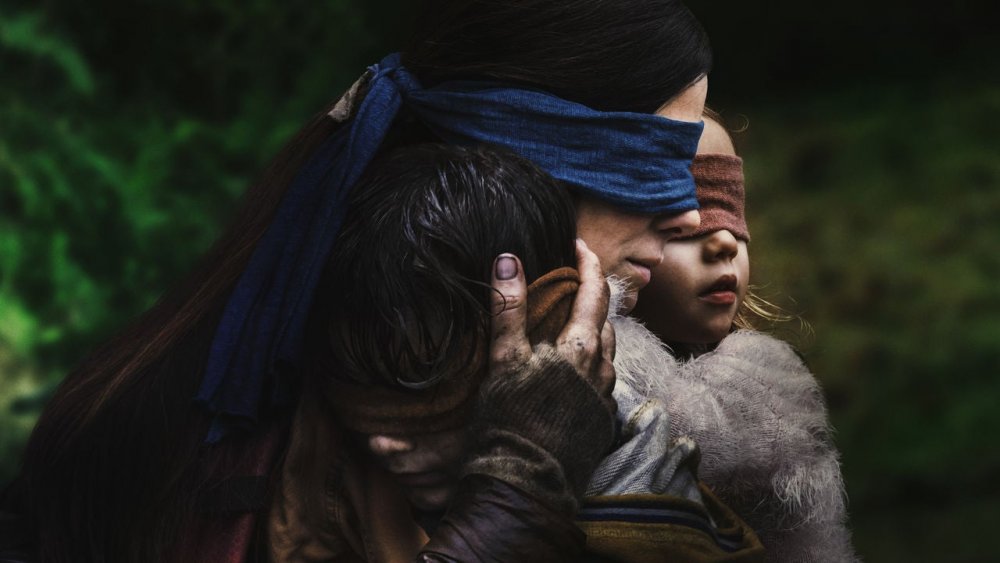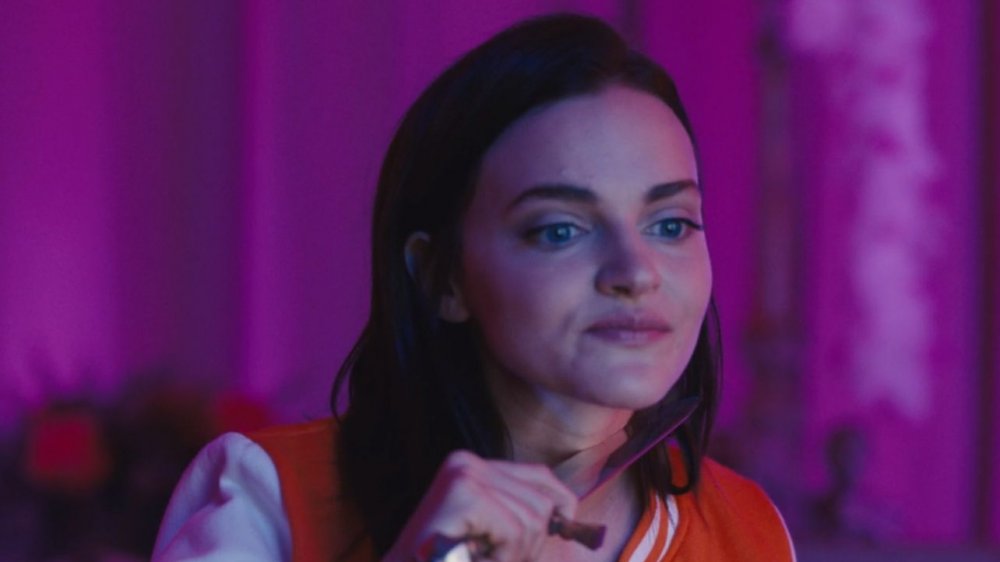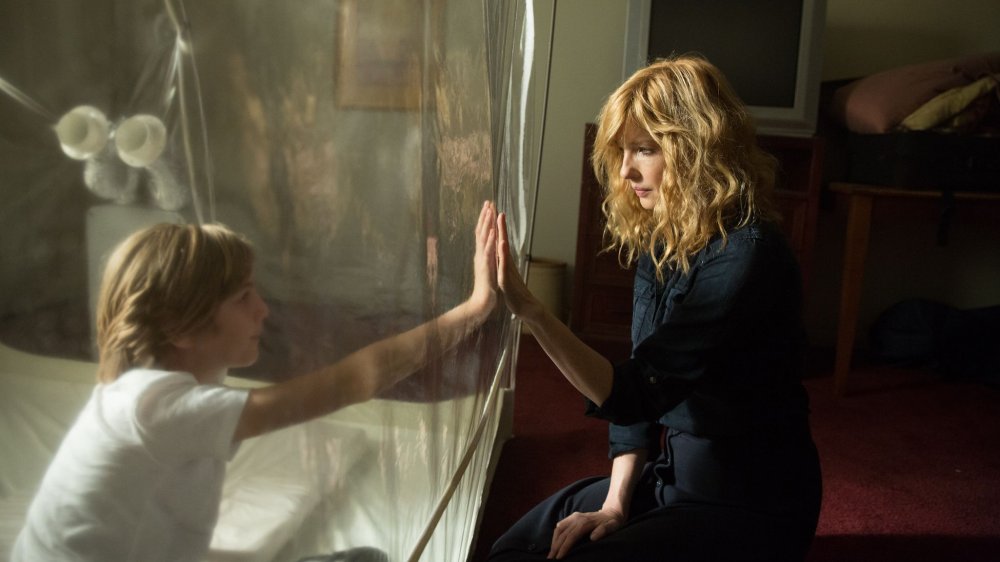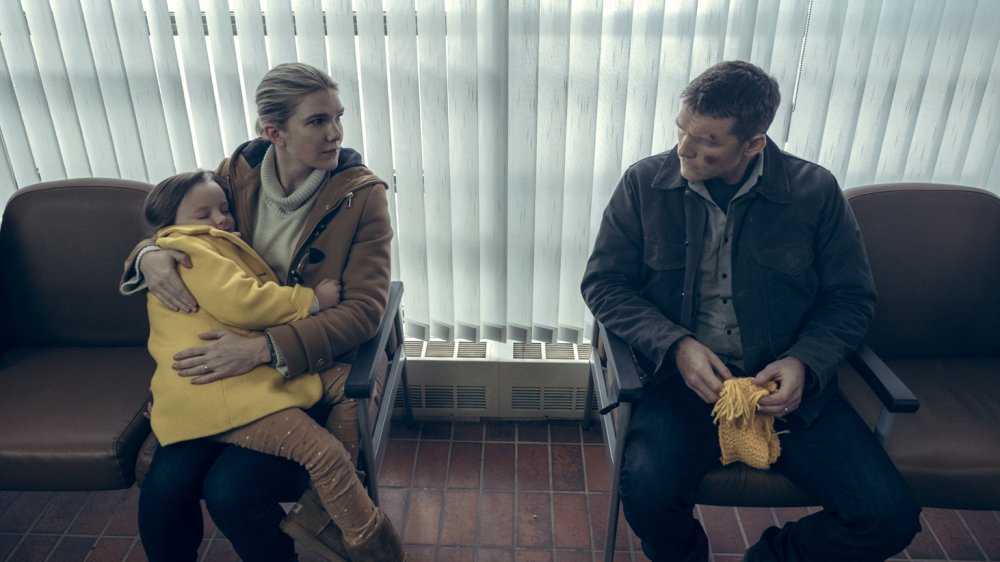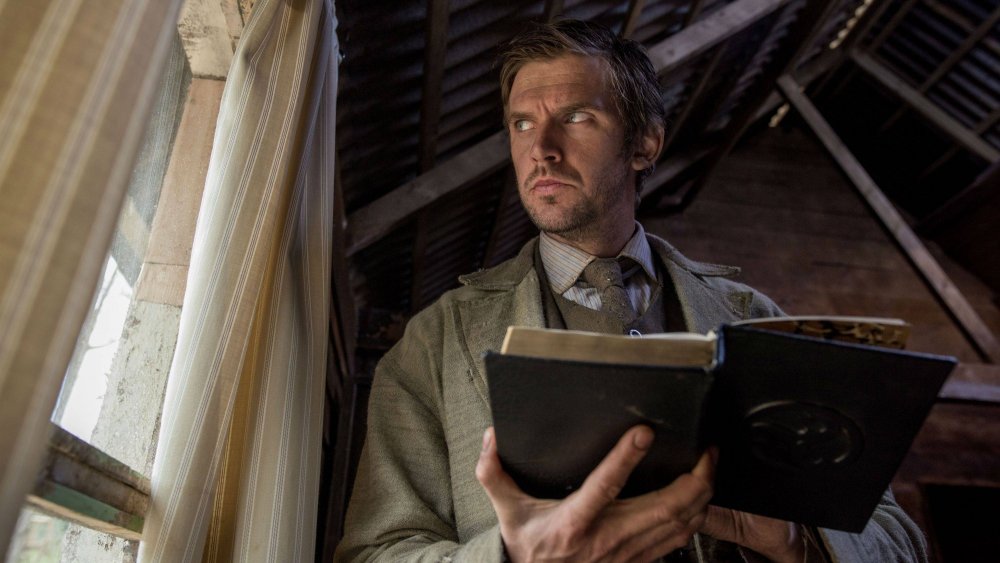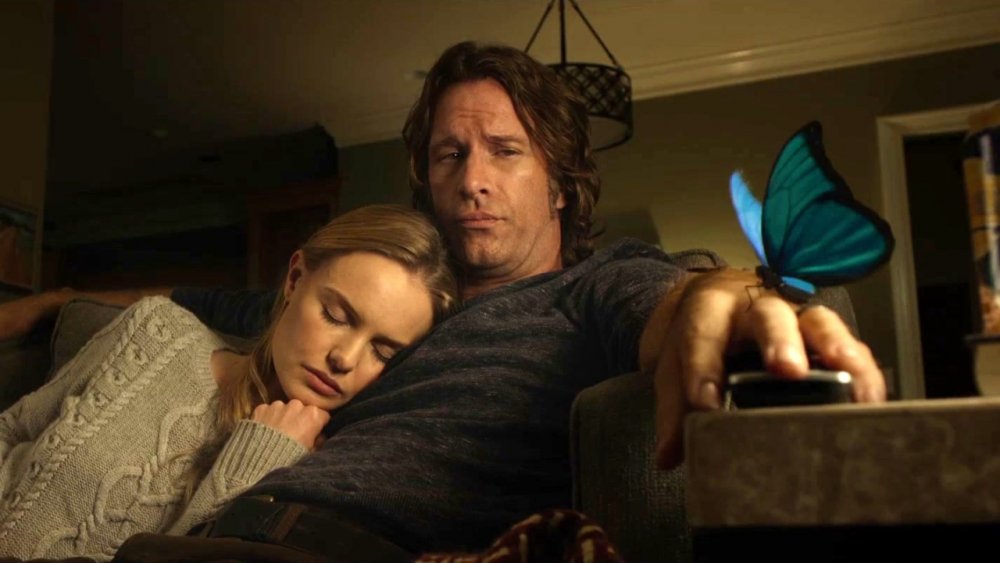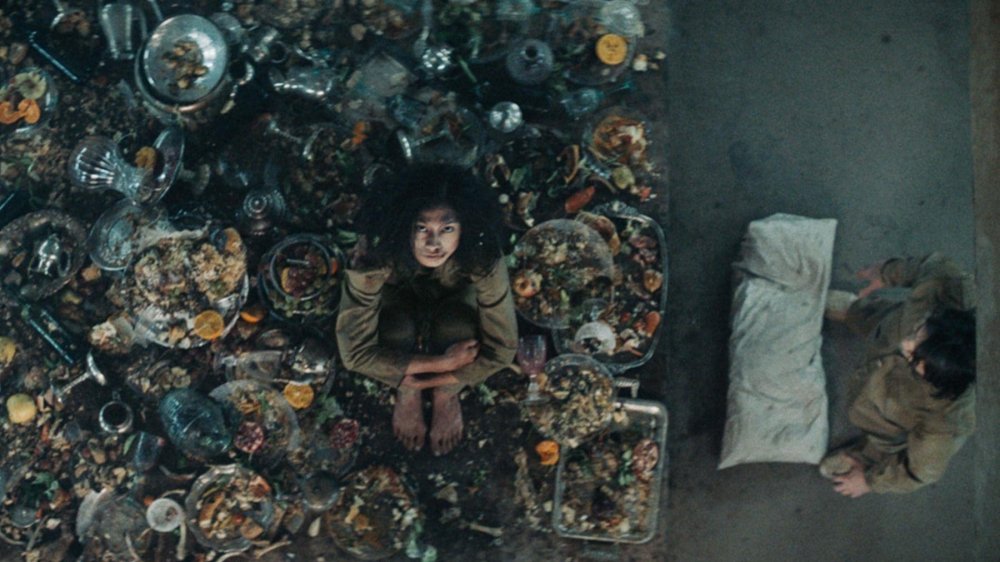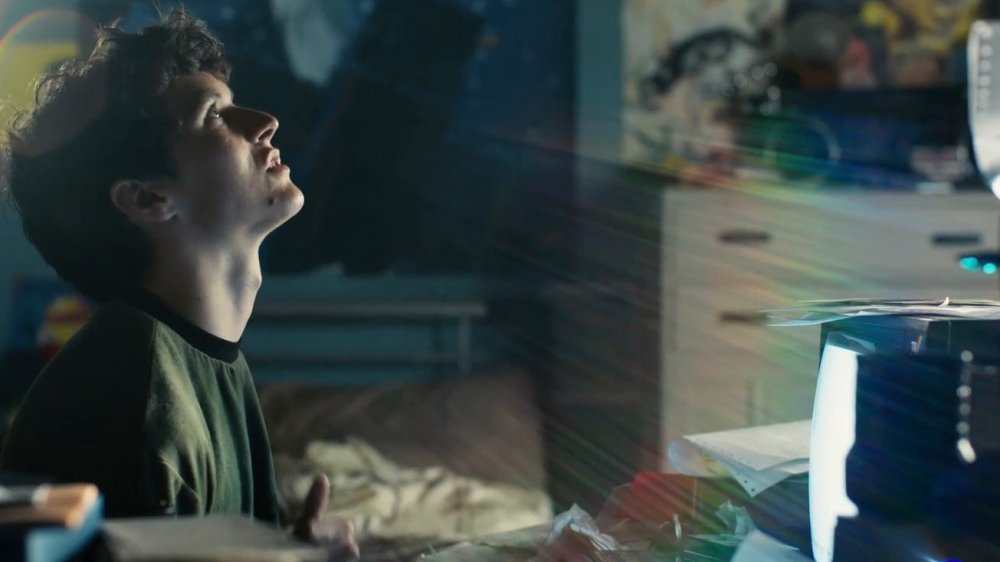Netflix Movies With The Best Twist Endings
There's nothing quite like a good twist ending. You may not remember the name of Bruce Willis' character in The Sixth Sense, but you definitely remember that he was dead the entire time. Pulling one off is difficult, however — nothing makes an audience angrier than a cheap third-act surprise. A truly spectacular twist requires careful planning, innovative writing, and acting of the highest caliber. Only when these elements are brought into harmony can a twist succeed.
Luckily, you don't have to wait for the next M. Night Shyamalan film to get your mind blown: There are plenty of amazing original movies available on Netflix that have stellar twist endings. Gather your friends, grab some popcorn, and take your pick from this list. Your jaw will be dropping in no time.
Keep in mind, however, that we're about to spoil every single one of these movies. If you'd like to preserve your innocence, consider reading nothing but the titles of this list. Of course, some research suggests people enjoy movies more when they know the twist ending, but if you'd prefer not to test that theory, this is your pre-spoiler warning.
Bird Box
For a brief moment in 2018, the internet was flooded with Bird Box memes. This tense horror story takes place in a world overrun by mysterious monsters whose appearances drive people to sudden, senseless suicide. The movie ricochets between the past, when all of this began, and the present, in which Sandra Bullock's character, Malorie Hayes, hurriedly shepherds two children across a post-apocalyptic landscape.
Bird Box's ending twist is unique in its hopefulness. Eventually, Malorie and the children arrive at a school for the blind, where many of the original inhabitants, protected by their condition, have formed a community. This reveal ends the film on a warily optimistic note, implying new ways forward for humanity in this ravaged world. Within the community, Malorie and her children can finally be a real family. She marks the occasion by naming the children Tom and Olympia, after two people who helped them on their journey.
Velvet Buzzsaw
Velvet Buzzsaw is a searing satire of the art world. There are characters here who genuinely care about their creations .... and then there are characters who only value art if it can be commodified. The movie follows them as, one by one, they meet their bloody ends. It's laugh-out-loud funny, genuinely smart, and massively gory. We guarantee you haven't seen another film like it.
Though a number of different characters investigate the strange deaths plaguing the LA art scene, gallerist Rhodora Haze is the only one to figure everything out. Cue Velvet Buzzsaw's big reveal: The suddenly sought-after work of a recently deceased artist is haunted by his vengeful spirit, and doing the killing itself. That's right — one man's entire oeuvre is the murderer. Sculptures chop arms off, paintings catch fire and burn their owners to death, and pieces melt en masse, suffocating a woman in paint. Rhodora gets rid of all the art in her home so that none of it can come to life and kill her. However, she forgets the tattoo referencing her old band, Velvet Buzzsaw, on the back of her neck. The saw comes to life, slowly rotating until Rhodora bleeds out. That's right: She's killed by the ghost of her own passion, sacrificed years ago at the altar of money. Also, an actual ghost.
The Perfection
The Perfection has one heck of a twist ending, but it's not the only shocking moment in the film. The Perfection has so many twists and turns, in fact, that paying scrupulous attention is a must if you want to end up with your jaw on the floor.
This film follows two young women who are students at a prestigious music school. Charlotte, played by Allison Williams, has to leave due to her mother's death. Years later, she returns and meets Lizzie, played by Logan Browning, the program's star student. Take a deep breath, because here come the twists.
At first, the women seem to hate each other, despite a mutual attraction. Charlotte drugs Lizzie, resulting in Lizzie chopping off her own hand in a hallucinogenic stupor. Lizzie tells Anton, the girls' domineering teacher, about this, only to be coldly rebuffed. Cue the second twist: Charlotte reveals to Lizzie that she recognized Lizzie as having been subject to the same sexual abuse Anton put her through. She pushed Lizzie into cutting off her own hand to free her from his clutches. Anton finds out, and forces Charlotte to perform for him, the teachers who joined him in abusing the girls, and Lizzie, who appears to be fully on Anton's side. Then, suddenly, the men, sans Anton, drop dead. Lizzie and Charlotte kiss, and reveal they planned the whole thing. They chop off all his limbs and force him to listen to them play their cellos.
Cam
Cam follows a girl named Alice who works as a camgirl to make extra money. Unsatisfied with her ranking, she fakes her own suicide to draw in more viewers. It works, but it also brings to light another camgirl who looks exactly like Alice. Soon enough, Alice is locked out of her own account, which the faux-Alice has gained exclusive control of.
Eventually, Alice challenges the faux-Alice to a contest in which they imitate each other with increasingly bloody results. Alice emerges victorious, and claims her prize: She is allowed to ask one question of faux-Alice. She asks for the new password to her old account, allowing her to delete it. However, she immediately starts a brand new account and begins streaming once again. That's right: She chooses to go back to the place that spawned an eldritch doppleganger she can't explain or control. Cam is an allegory of the internet, in which attention is worth whatever one has to do to gain it. The twist is among the bleakest on this list — and therein lies the movie's point.
Eli
At first glance, Eli seems like a haunted house film crossed with a medical drama. Eli, a young boy with an immunodeficiency disease, has lived his whole life in a "bubble suit." His parents take him to Dr. Isabella Horn, who insists she can cure Eli with unique treatments offered at her secluded medical facility.
The treatments are excruciatingly painful. Moreover, Eli begins to notice supernatural phenomena, and discovers Dr. Horn's records of patients who died in her care. Despite his protests, his parents won't let him come home. Are they cruel? Are they stupid? Are they in league with Dr. Horn? It all comes down to the haunting final twist.
Eli never had an immunodeficiency disease at all. The reason his parents kept him in the house for all those years is because he's actually the devil's son. Eli's mother was unable to conceive a child naturally, so she made a deal with the devil, who promised her a normal child. Naturally, the devil lied — and not for the first time. Dr. Horn's victims were actually other children of Satan, the "treatments" are preludes to ritual murder, and Eli's "allergies" are his powers beginning to manifest. In the end, Eli murders Dr. Horn, her assistants, and even his own father. But then, as a newfound half-sister informs him, the man who forced Eli into his bubble suit wasn't his "true father," who he is driven off to meet before the credits roll.
Fractured
Fractured finds Ray, Joanne, and their young daughter Peri on the road home from a Thanksgiving visit with Joanne's mom. When Peri is injured at a gas station, her parents take her to a nearby hospital. In the ensuing chaos of paperwork and CAT scans, they agree to put Peri on an organ donor list, despite the fact that she only has a broken arm. Ray falls asleep, and when he wakes up, he discovers that his wife and child are missing. The hospital, which has undergone a shift change, has no records of them ever being there. The only nurse bridging the two shifts claims Ray came in alone, seeking treatment for a head wound.
Fractured is the kind of film that keeps you guessing. However, if you paid enough attention to the first scene, you're in a better position to make sense of the end. The big twist is that Ray never went to the hospital with the rest of his family at all. Joanne and Peri died at the gas station — the accident that broke Peri's arm was a whole lot worse than it seemed. Though the film hints at the hospital being a front for organ selling, that too is a delusion of Ray's flailing psyche. Basically, most of the movie isn't real. It's just one man's desperate dream.
Apostle
Apostle starts slow, but its thrilling final climax is worth waiting for. The movie, which takes place in 1905, follows Thomas, a young man seeking to rescue his sister, who's being held prisoner by a cult on a remote Welsh island. Thomas infiltrates their ranks, pretending to be a curious convert ... only to realize that the cult is far more twisted than he'd realized.
The cult worships a goddess who demands regular blood sacrifice. She doesn't seem terribly pleased, however: Plants die out throughout the film, and animals begin birthing warped creatures. Cue the big twist: Thomas learns that the goddess the cult worships is actually real and being held prisoner. The cult leaders have been feeding her blood to sustain her and the island, and have come to regard her as "a machine" that produces "results." They might call her a deity, but in practice, she is their slave.
The goddess begs Thomas to kill her, which he does. Soon, the entire village catches fire, and the inhabitants of the island flee for their lives. The cycle doesn't end there, however: As the final scene makes clear, Thomas inherits the goddess' powers and becomes the island's new deity.
Before I Wake
Before I Wake tells the story of Jessie and Mark, a couple who decide to foster a child named Cody in the wake of their young son's death. They soon discover that Cody refuses to go to sleep at night. When he finally drifts off, they learn why: Cody's dreams come to life. Initially, this is delightful, especially when iridescent butterflies manifest in the family's home. Things take a darker turn, however, when the boy's nightmares begin to take shape in the form of the Canker Man, a skeletal monster with violent appetites.
The Canker Man devours Mark, and is revealed to have similarly murdered one of Cody's former foster parents as well. Whelan, husband to the other deceased parent, urges Jessie to kill Cody. The twist, however, completely re-contextualizes the creature. The Canker Man is actually based on Cody's mother, who died of cancer when he was very young, forcing him into the foster care system. Cody's nightmares are centered around the fear of losing the person he cares about most — a fate he knows all too well.
Having discovered this, Jessie confronts the Canker Man with a warm and fearless hug, dispelling the creature for good. She and Cody pore over a journal left to Cody by his deceased mother, and Cody begins to take steps to control his dreams. This twist isn't just shocking — it's tear-jerkingly emotional.
The Platform
Numerous films over the last few years have taken a hard look at economic inequality. One of the most overlooked movies of this stripe is The Platform, a Spanish sci-fi story set in a large, vertical tower. Food is distributed throughout the tower on a platform that slowly descends through every floor. Those at the top get the most access, while those living lower get progressively less and less to eat. Past the point of certain floors, no one gets anything to eat at all.
Goreng, a prisoner, has spent months in the tower. Just as he is about to make his way to the top, he stops in his tracks and allows a child to ascend by herself. It's a shocking turn of events, but it's all in service to the film's themes. Goreng has already been corrupted too much by the tower. The young girl functions as a symbol of the future, and its unspoiled promise. Empowered by the support of others, she can climb higher — literally and figuratively. You might be shocked by the abrupt change of direction, but upon reflection, you'll realize it's the only way the movie could have ended.
Black Mirror: Bandersnatch
Black Mirror is an anthology series that examines the darkest futures of a world dependent on technology. The series decided to dip its toes into something truly innovative in 2018 when it created a choose-your-own-adventure episode entitled "Bandersnatch." The viewer takes the reigns of a young programmer who gets a job adapting a sci-fi novel into a video game. Since you get to decide the protagonist's fate, there are several endings you can end up with. All of them get pretty twisty, but there's one ending that no one saw coming.
If you play your cards right, you can end up in a scenario where the main character, Stefan, is trying to determine if a higher power is actually controlling his actions. One of the options presented to you is "Netflix." From there, Stefan becomes aware of the 21st-century streaming service and even tries to talk to his therapist about it. If you continue down a certain path, then the director will even come into frame and talk to Stefan like he's an actor. It's just one of the many bonkers endings you can end up with, and it takes a lot of work to get there, but it's an unforgettable twist delivered in a way you've definitely never experienced before.
